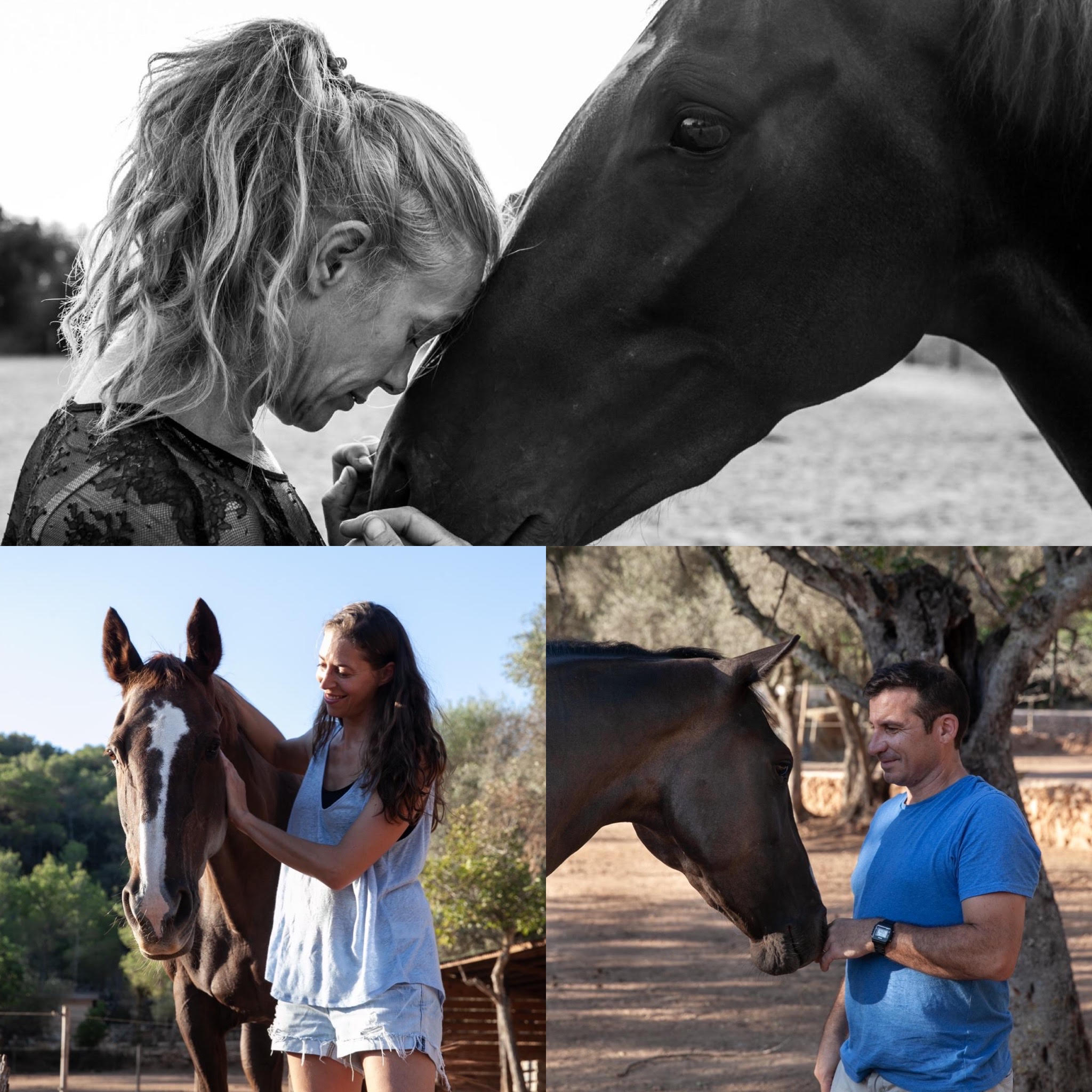Horses are intelligent and sensitive creatures and working with them can help those struggling with addiction and other mental health disorders.
Working with horses teaches the importance of building healthy relationships, establishing and understanding boundaries, learning about responsibility and how to focus. It increases trust, confidence and self-control and fosters feelings of being needed and wanted.
The terms equine, equine facilitated, or equine assisted therapy are all used to cover a range of treatments and activities that involve interacting and working with horses (ponies and donkeys) to treat physical and psychological problems.
Animals have been used to aid healing in humans for centuries. In medieval Belgium humans were rehabilitated with small animals, Florence Nightingale noted that pets helped reduce stress and anxiety in patients and in the 1940’s farm animals were used as a therapy for those traumatized and damaged by war.
Horses have always been a popular choice as they give immediate feedback and insight on a person’s emotions. They are huge creatures yet are surprisingly gentle and incredibly intuitive. The ancient Greeks used them to lift the spirits of the severely ill, and in the last century we saw the introduction of horse riding as rehabilitation for those with polio and certain disabilities.
Over the last 10-15 years the use of equine therapy to treat addiction and mental health disorders has grown in popularity, with many US based addiction rehabilitation centresincluding it as part of their treatment programs.
How does equine facilitated therapy work?
Horses are herd animals; they live in a team or a community. They are also prey animals which means they are hyper vigilant. They are always alert to potential danger and what is happening around them.
Equine animals are highly responsive and insightful; they will instantly react to the feelings and emotions a human generates. Often likened to looking in a mirror, the way a horse reacts to a person is an honest reflection of what they feel and see in them. Animals are not conditioned to be polite in the way humans are, and the feedback given is untainted by social niceties.
A horse wants to keep their community harmonious so they will try to level out a person’s mood, meaning if an individual is depressed or withdrawn, they will try to give comfort and if a person is aggressive or angry, they will refuse to engage with them until the individual has calmed down and become more mellow.
Equine assisted therapy entails either a psychotherapist, together with a horse trainer; or a specially qualified equine psychotherapist, setting a series of customised goals for a client to work on together with the horse. These goals are specifically designed around the emotional or physical needs of the individual and encourage building a relationship of trust and confidence between them and the horse.
This not only enables the therapist to have an insight into the client and how they are feeling and reacting but encourages individuals to develop skills such as restraint, patience, and focus.
What is equine therapy used for?
Equine therapy is used in the treatment of a range of mental health disorders including –
Looking after the horses encourages growth in different areas. Having a mental health illness can be incredibly lonely. Sufferers isolate themselves from the world, limiting communication with others and often forming either no meaningful relationships or unhealthy ones. Interaction with horses encourages clients to open themselves up to new experiences and feelings, to learn to trust other people and have confidence in themselves and their own instincts.
The work with the horse requires the client to be present in the moment, to focus on the task at hand rather than worrying about what has happened in the past or what is in the future, bringing it all back into the day.
Caring for animals requires discipline and structure. It is necessary to show up, take part, and to be responsible for one’s actions and behaviour. In return for doing this the horses teach clients vital information about themselves, such as acceptance, boundaries, and self-control and about how to go about living a better life.
Here at the rehab in Ibiza we use equine facilitated therapy (link to Ibiza calm page https://www.ibizacalm.com/equine-facilitated-psychotherapy/) as a part of our broader treatment programme and this is done in partnership with Kate Stillman of Ibiza Counselling.
Throughout their stay here at the rehab centre, clients have a weekly visit to the beautiful and secluded farm set in the Ibiza hills. No previous experience of horses is necessary and there is no riding involved, making it accessible and suitable for everyone. Clients are always accompanied by a qualified and registered equine psychotherapist.
Kate, who owns and runs Ibiza Counselling, is a fully qualified psychotherapist and certified equine psychotherapist. She, and her team, are members of BACP (British association of counsellors and psychotherapists) and are certified by LEAP, the only regulated training program for equine facilitated psychotherapy in the UK.
You can read more about Kate, Ibiza Counselling and equine facilitated psychotherapy on her website – http://www.ibizacounselling.com/
For information regarding admissions to our rehab in Spain, please contact sharon@ibizacalm.com

